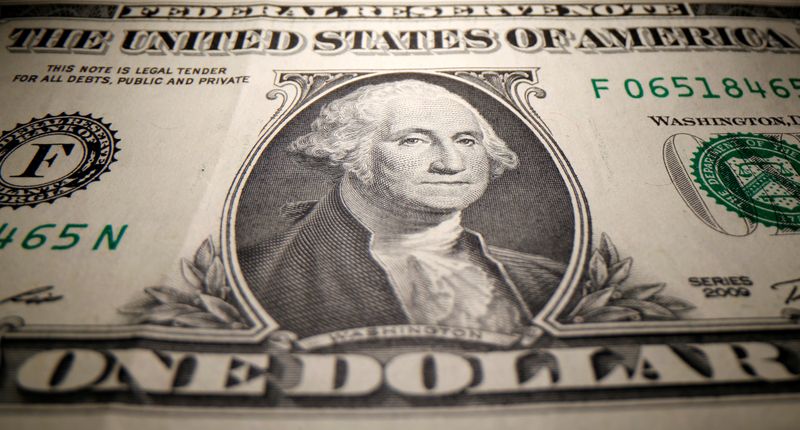By Laura Matthews
NEW YORK (Reuters) – The dollar strengthened against the euro on Thursday, after better-than-expected U.S. economic data continue to foil investors’ expectation for relatively dovish monetary policy from the Federal Reserve.
A recent string of strong data show that, for now, the U.S. is staving off a recession, increasing the likelihood that the Fed could further hike interest rates if it continues to see strong economic numbers across the board.
The U.S. economy grew faster than expected in the second quarter as labor market resilience underpinned consumer spending, while businesses boosted investment in equipment, potentially keeping a recession at bay.
Initial claims for state unemployment benefits fell by 7,000 to a seasonally adjusted 221,000 for the week ended July 22, the lowest level since February, according to a Labor Department report. Economists had forecast 235,000 claims for the latest week.
“The market is of the view that things will slow down pretty rapidly in the U.S. And the market is instead somewhat more constructive on the rest of the world,” said Alvise Marino, macro strategist at Credit Suisse in New York.
“It doesn’t take a lot to upset those expectations. Today’s numbers very much reinforced that.”
The dollar index, which measures the currency against six major peers, rose 0.692% to 101.790, while the euro is down 1.06% to $1.0965.
Meanwhile, the Japanese yen strengthened 0.77% versus the dollar at 139.14, after a report that the Bank of Japan will discuss tweaking its yield curve control policy at a meeting on Friday.
The BOJ is largely seen maintaining its ultra-loose policy stance, although a tweak to the policy remains a possibility.
“The market is generally positioned in a way that it is prepared for the possibility that the BOJ might do something that is relatively hawkish,” said Marino.
The BOJ is that last in a trio of central banks to hold policy meetings in a week where both the Fed and the European Central Bank raised rates by a quarter of a percentage point, as expected.
Fed Chair Jerome Powell left open the possibility of another hike in September, and the ECB kept its options open on whether more increases will be needed to bring down inflation even as evidence of a slowdown in Europe is mounting.
Loan demands hit a record low in the second quarter, business confidence has deteriorated in Germany, and disappointing Purchasing Manager Indexes came in below expectations for the euro zone as a whole.
“You’ve got this weakness in the data from the euro zone and more resilience from the U.S. That just questions why the market’s being so long of the euro whilst it’s questioning the ability of the dollar to hold its ground,” said Jane Foley, head of FX strategy, Rabobank London.
“I think that the resilience of the U.S. economy should counter some of the bearishness that the dollar has been seeing in recent weeks.”
Meanwhile, Sterling was last trading at $1.2783, down 1.21% .



